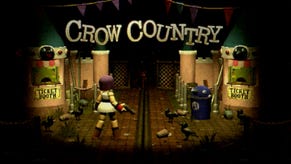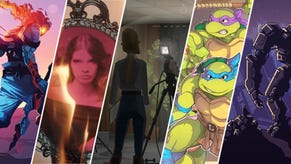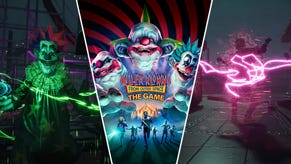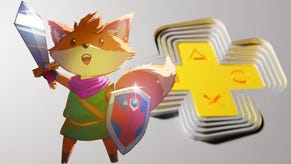Metal Gear Solid: Ground Zeroes and the Trouble With Tone
The problem with the controversially brutal material in Hideo Kojima's latest Metal Gear isn't the content itself – it's everything else that surrounds it.
This article first appeared on USgamer, a partner publication of VG247. Some content, such as this article, has been migrated to VG247 for posterity after USgamer's closure - but it has not been edited or further vetted by the VG247 team.
Metal Gear Solid: Ground Zeroes has a problem.
Well, it has a few problems, depending on whom you ask. Some people can't get over the fact that Konami expects them to pay $30 for what amounts to a demo, understandably enough. Others dislike the way the game so willingly forsakes many unique mechanics and conventions of the series in favor of more standardized features (regenerating health, for example) – though in many cases, Ground Zeroes makes changes because the old ways were clunky and obsolete. You no longer need to fuss with your camouflage index because you can tell at a glance if you're exposed, for example.
No, the real problem with Ground Zeroes comes from a conflict that's been brewing beneath the surface of the Metal Gear franchise for ages: Its wild, whiplashing narrative tone.
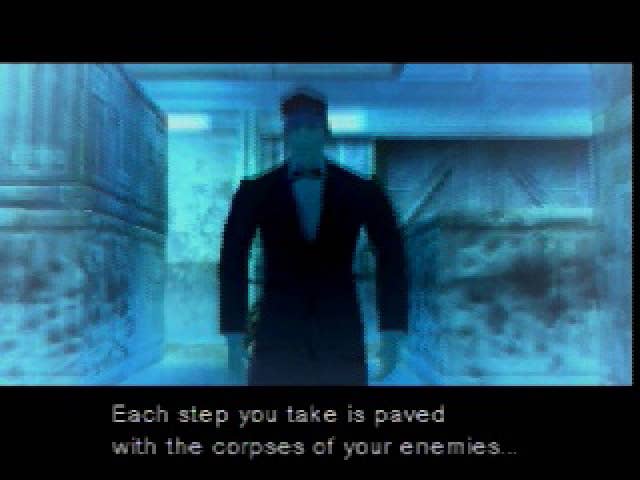
The Metal Gear games straddle a wide range of influences, embracing meticulous Tom Clancy-style political turmoil, Hollywood by way of producer Hideo Kojima's favorite movies, and broad-strokes comedy all at once. It's the saga of a super-soldier clone named "Solid Snake" and his father "Big Boss" who each play a key role in the balance of global power in the wake of Cold War by means of giant, walking tanks that fire nuclear weapons. The series' awkward verbal tics ("Metal Gear!?") have become running in-jokes. Bad guys possess bizarre mystical powers and reveal their heart-wrenching backstories as they die. At one point, a talking hand spouted campy threats.
Ground Zeroes maintains this grand tradition of comic book wackiness. It features a villain named "Skull Face" who gestures grandly and speaks in hokey action movie clichés. His nebulous scheme seems to revolve around taking the logo of Big Boss' former special ops unit – FOX Unit – and mirroring the artwork to turn it into "XOF." It's all utterly ludicrous, and new lead voice actor Kiefer Sutherland mumbling his way through the story doesn't exactly help sell it.
Yet it tries so hard to be deadly serious. (Ending spoilers ahead.) At the end of Ground Zeroes, the game's sole female character – a young woman named Paz – leaps out of a helicopter and immediately explodes due to a bomb Skull Face evidently implanted into her genitals while he tortured her. If you explore the game and uncover hidden audio recordings, it comes to light that both she and Chico, her former ally under Big Boss' command in Metal Gear Solid: Peace Walker, were beaten, tortured, and raped while in confinement by Skull Face's XOF organization. Unlike in previous Metal Gear games, there's no ambiguity on this point, as the abuses that Chico and Paz suffer are presented in detail via audio logs rather than simply referred to in oblique terms.
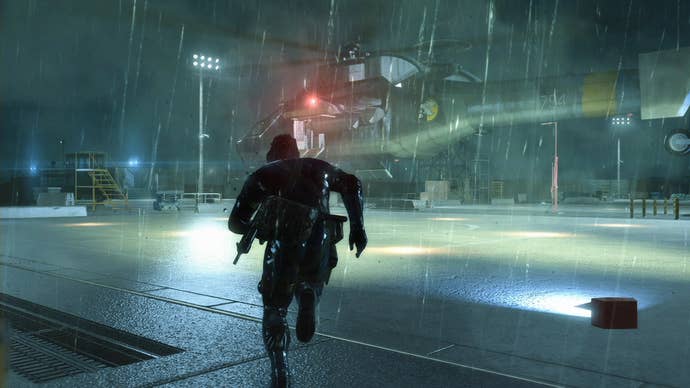
It's a pretty miserable conclusion to Paz's story in particular – a character seemingly created entirely for the sake of being abused. In her introduction in Peace Walker, we learn that her body is covered with scars resulting from extensive torture. And in that moment, Metal Gear's tendency toward ill-considered collisions of story and presentation shines for all to see: As Paz shudders while others discuss her misfortunes, the game provides the player with the opportunity to "examine" her quivering body through an interactive cutscene that allows you to strip her to her underwear and zoom in on her injuries – or on other details, if you prefer. It's a strange, uncomfortable design choice. Peace Walker's interactive cut scenes come few and far between, and for the first of them to allow you to ogle a vulnerable, damaged young woman feels like tasteless voyeurism.
Paz's treatment in Ground Zeroes, then, simply brings her awful narrative arc to its horrible conclusion. Sure, Paz is no angel – she works as a double agent and plays the role of Peace Walker's final boss – but her treatment across the two games borders on vile. The fact that Chico, an underaged boy, is taken down the same path (beaten, raped, forced to torture and rape Paz in turn, then mutilated with steel bolts through his Achilles tendons) makes it all the worse. It sits at odds with both the game's legacy of comic book plotting and its clunky present-day dialogue.
But in a way, this gruesome turn makes a sort of sense entirely because of the series' comic book vibe. Violence, torture, and sexual abuse constitute the same road that comic books tend to travel when their creative leads decide these stories about muscle men in colorful tights suddenly need to be taken seriously. Alan Moore's Watchmen marks the jumping-off point for the American comics industry's drive to maturation, and not coincidentally one of its key backstory elements involves the attempted rape of adventuress Silk Specter by her mercenary ally, the Comedian.
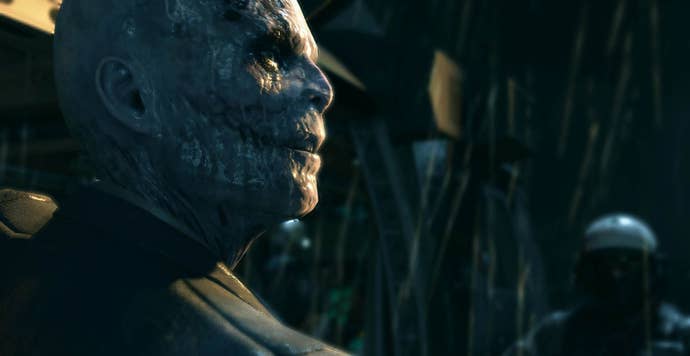
That sequence worked within the context of Watchmen; Moore presented the idea of vigilantes who dressed in bright spandex with an unflinchingly blunt perspective and backed it up with literary prose and rich visual symbolism alike. In the grand scheme of Watchmen, where masked "heroes" seemed to result from mental illness and repression – from the Nite Owl's emotional emptiness and Rorschach's right-wing sociopathy to bygone crusaders whose homosexuality led to their deaths as the result of apparent hate crimes – the Comedian's attempted crime against his comrade didn't feel out of place. Furthermore, that violent encounter wasn't the end of Silk Specter's tale; she played an important role in the series, and her relationship with the Comedian (a complex thing in and of itself) was only a part of her story.
Unfortunately, Ground Zeroes lacks Watchmen's narrative coherence. For every stroke of brilliance that appears in Kojima's writing, you'll find several poorly explained plot twists, countless examples of tin-eared dialogue, and a few nebulous character motivations for good measure. Metal Gear's approach to these subjects instead has much more in common with comics that look to Watchmen for tone and plot ideas without taking the time to imitate Moore's extravagantly dense plotting or, worse, the undercurrent of contempt for cheap violence in fiction that permeates Moore's book. Ground Zeroes continues Metal Gear's comic book legacy, but it's less Watchmen and more like Identity Crisis or Ultimatum: Grim, yet lacking the narrative chops necessary to justify its bleak tone.
Comics also give us the term "Cerebus syndrome," a reference to Dave Sims' long-running graphic novel series, which went from zany Conan the Barbarian satire to extensive and often bizarre treatises on the evils of religion and women. In general terms, "Cerebus syndrome" refers to the tendency of humorous works to slowly become more serious in tone as their creators invest more of themselves and their perspective into their creations. Sometimes it works, as with Terry Pratchett's Discworld novels, but usually it doesn't. Here, it doesn't work. But Kojima is in his 50s now, and Metal Gear is his magnum opus. Small wonder he would want it to become something more meaningful. Sometimes, though, it's good to know when to cut your losses.
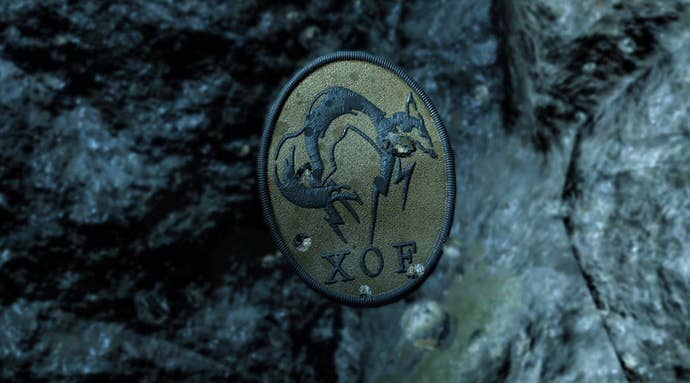
The sort of dark content Metal Gear has begun to dabble in with increasing frequency certainly isn't without its place. The series revolves around warfare, and America's private wars of the latter 20th century in particular, and truly horrible things happen in the wake of wars. I do question, however, whether the place for it is Metal Gear. I have a difficult time swallowing detailed accounts of human rights violations and sequences explicitly featuring a doctor rummaging around in a girl's intestines for a bomb when it's coming from the same series that has given us nonsense like: Grizzled war heroes bumbling about in cardboard boxes; public urination for comedic effect; promotional videos capped off with ejaculation jokes; a mad Russian riding a nuclear tank in idiotic little circles before being fried by lightning; and so forth.
Kojima seemingly wants Metal Gear to be zany and deeply serious all at once – hence his constant use of Joan Baez's political protest song "Here's to You" to underscore Big Boss' seeming betrayal by the American government – but it just doesn't work. When Kojima's "meaningful message" ambitions took the form of lectures on nuclear proliferation from a woman with a silly get-moose-and-squirrel accent, it felt congruous with the rest of the goofiness on parade. Nearly every Metal Gear game features an interactive torture sequence, but this inevitably amounts to an antiseptic minigame in which you mash a button as a bad guy electrocutes the hero. Ground Zeroes removes the interactivity, yet it takes Metal Gear in a direction the series as a whole lacks the gravitas to support.
The real problem, I think, boils down to Metal Gear suffocating under the weight of its own legacy. If Kojima had presented Ground Zeroes as a new property, free of 27 years of schlocky narrative and dumb character names, he could probably sell the game's darker plot details with just a bit of refinement to the dialogue. Besides the grandiose posturing of its villain, Ground Zeroes maintains a fairly serious tone throughout. But then you remember the main character is called Big Boss... and that his chief advisor is destined to be murdered and impersonated by a man who offers tips on ergonomic gaming via radio... and that his top scientist will have grown children who wet their pants at the first sign of personal danger... and that Big Boss' cloned son will briefly hook up with a woman who eventually marries a joke character with chronic diarrhea... and the list goes on. Quite simply, all of this does not constitute a framework for a serious discourse on the brutality of the imperialist military-industrial complex.
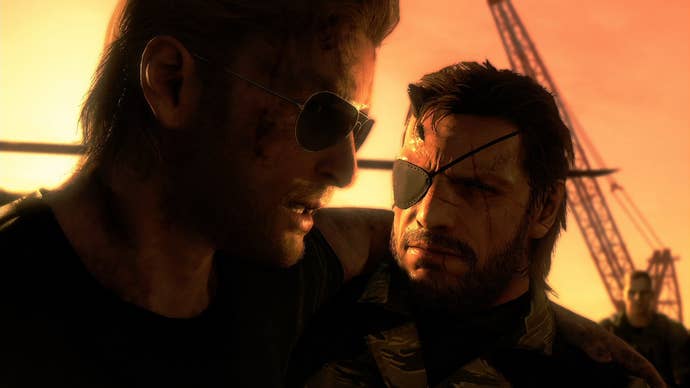
This is hardly the first time Metal Gear has run afoul of its own ludicrous history. When it came time to wrap up the saga (or so we thought) with Metal Gear Solid 4, Kojima had to contend with a spaghetti bowl of dangling plot ends. His solution, wisely, was to say, "Don't take it too seriously." Instead of taking an slavishly faithful approach, he instead glossed over the specifics. Loose ends were hand-waved with nanomachines, Big Boss made peace with Solid Snake and longtime rival Zero, and things wound down about as well as they could be expected to. Sometimes MGS4 played things straight, but always within an overarching context that demanded suspension of disbelief. This time around, though, Kojima appears to have gone the opposite direction and embraced deadly seriousness.
It doesn't work. There's simply too much ridiculous baggage attached to Metal Gear for anyone who's been following the series for any amount of time to tag along as the narrative jumps headfirst into a world of explicit gang rape and child mutilation. I haven't given up on the series just yet, though; I'm curious to see if Ground Zeroes proves to be an ill-advised blip, or if its darker tone represents a new status quo for the franchise. I can't shake the impression that Kojima has crossed the Rubicon here, and if that turns out to be the case, I'll quite likely part ways with the series after Ground Zeroes' follow-up, The Phantom Pain. It certainly wouldn't be the first beloved franchise I've given up on after its stewards chose to salt the earth in the name of edgy maturity without the substance to back up those ambitions. Still, having been following the series for the better part of my life, I really hope it doesn't come to that.




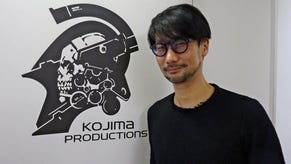


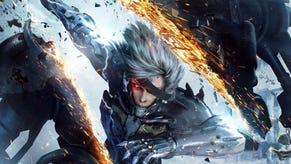
.jpg?width=291&height=164&fit=crop&quality=80&format=jpg&auto=webp)



